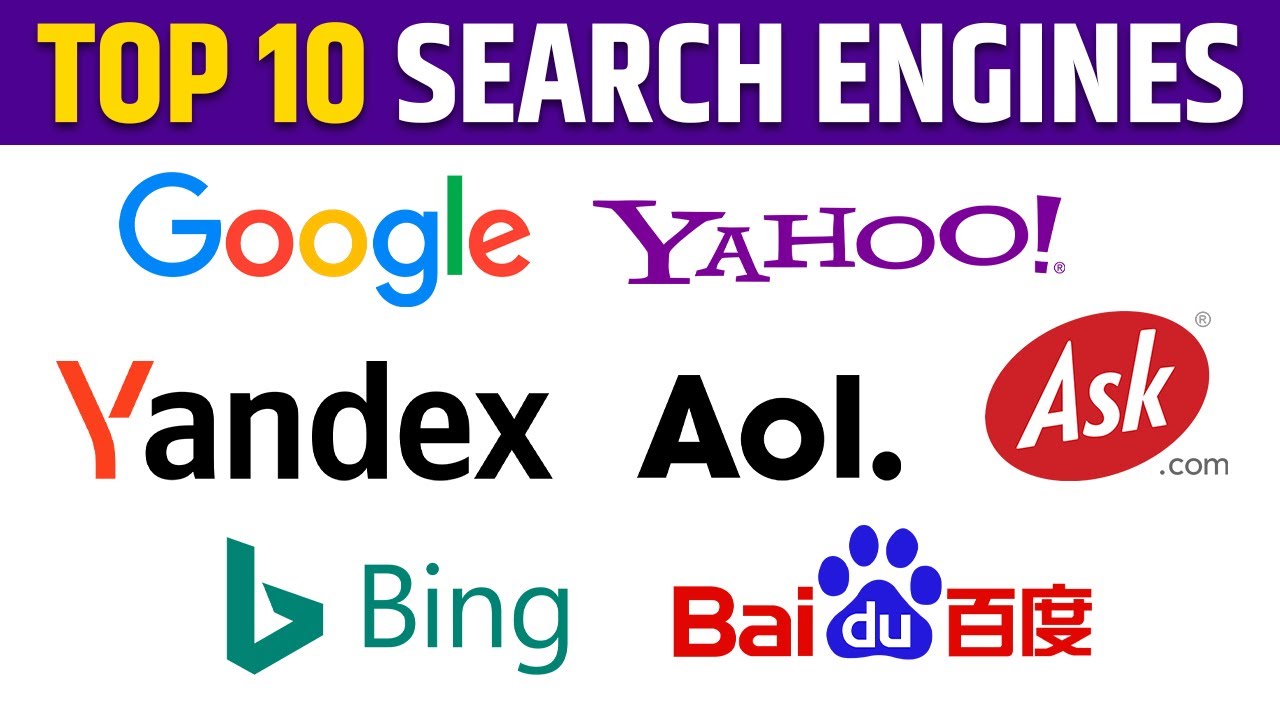When it comes to search engines, Google is undoubtedly the reigning champion, but it’s not the only player in the game. Several other search engines offer unique features and perspectives, providing users with alternative options for discovering information online. In this article, we delve into the top 10 search engines that go beyond Google’s dominance, highlighting their key features and what sets them apart.
- Bing: Developed by Microsoft, Bing is the second-largest search engine worldwide. It offers a visually appealing interface, personalized news feeds, and integrates with Microsoft products like Windows and Office. Bing’s focus on image and video search, along with its integration with Microsoft Edge browser, makes it a popular choice for multimedia-related queries.
- Yahoo: Once a leading search engine, Yahoo now relies on Bing’s search technology to power its results. Yahoo still maintains a strong presence as a web portal, offering news, email services, and a range of other features. Its search engine combines Yahoo’s own web directory with Bing’s search results, providing a blend of curated content and organic listings.
- Baidu: As the leading search engine in China, Baidu holds a significant market share in the country. It caters specifically to Chinese language and culture, offering various services such as maps, news, and multimedia content. Baidu’s unique features include image search, question-and-answer forums, and its own web-based encyclopedia.
- Yandex: Yandex is Russia’s largest search engine and offers a wide range of services beyond search, including email, maps, translation, and cloud storage. It specializes in understanding the Russian language and provides localized results. Yandex also has a strong presence in neighboring countries like Ukraine and Kazakhstan.
- DuckDuckGo: DuckDuckGo differentiates itself by focusing on user privacy. It does not track or store user data, making it a popular choice for privacy-conscious individuals. DuckDuckGo aggregates search results from various sources, including its own web crawler and partnerships with other search engines. It also features instant answers, meaning it provides direct answers to specific queries.
- Ecosia: Ecosia sets itself apart by focusing on environmental sustainability. It donates a significant portion of its revenue to tree-planting projects around the world. Ecosia utilizes Bing’s search technology and aims to provide users with a carbon-neutral search experience while contributing to reforestation efforts.
- Startpage: Startpage emphasizes user privacy and anonymity. It acts as an intermediary between the user and Google’s search results, removing personal information from queries and delivering search results privately. Startpage ensures that users can enjoy Google’s search functionality without compromising their privacy.
- Qwant: Qwant is a privacy-focused search engine based in Europe. It aims to provide unbiased and unfiltered search results while respecting user privacy. Qwant offers specialized search categories, including web, news, images, and social media, making it a versatile option for finding information across different platforms.
- Swisscows: Swisscows, also known as Hulbee, is a privacy-centric search engine that prides itself on not collecting user data. It utilizes semantic search technology to deliver accurate and contextually relevant results. Swisscows also provides a family-friendly search option that filters out explicit content.
- WolframAlpha: WolframAlpha takes a unique approach as a computational knowledge engine. Rather than providing a list of web pages, it generates factual and data-driven answers to specific queries. WolframAlpha is useful for scientific, mathematical, and statistical information, making it a valuable resource for educational and research purposes.
Conclusion: While Google remains the dominant player in the search engine market, there are several alternative search engines that cater to specific needs and priorities. Whether it’s privacy, regional relevance, sustainability, or specialized knowledge, these top 10 search engines offer users a range of options beyond Google’s ubiquitous presence. Exploring these alternatives can provide a fresh perspective and unique features that enhance the search experience while aligning with specific preferences and values.

Leave a Reply